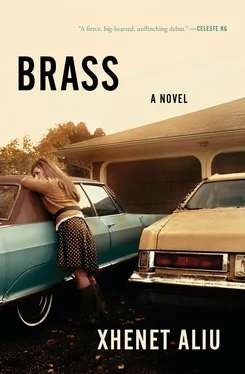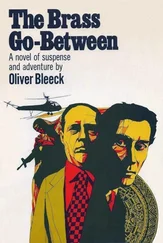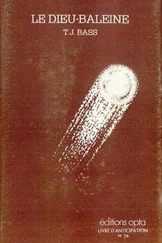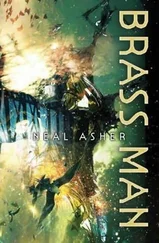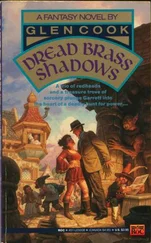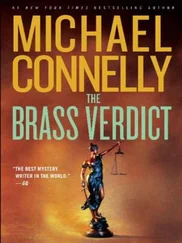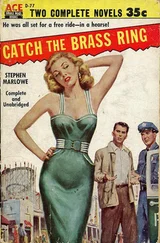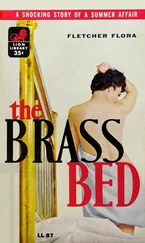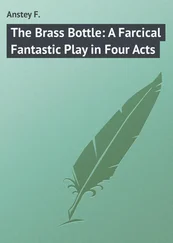The baby had been kicking this whole time, but she hushed up then, too.
“What?” I said.
“Agnes,” he said, using her formal name, as if he could make her into a distinguished guest, a diplomat who we were lucky enough to host.
“But that,” I said and wasn’t sure what to follow it up with, and anyway, I had to press my tongue to the roof of my mouth because I began to feel very sick, as if I’d been blindfolded and spun around and brought to a place that would be familiar if only the room would stop spinning.
“It has gotten very dangerous there. The government is gone. It is just riots and gangs in the streets, and she has nowhere to go, she has nowhere there to live.”
The baby was kicking again. She had come back alive and was raging, but I was still just sitting there, trying to catch enough air to make me feel like I wasn’t suffocating.
“Her parents are already in Greece, her brother is in Texas. She will go down there eventually, but first she has to come here so we can”—he paused—“take care of things.”
“But you can’t,” I said.
“I will come right back. Nothing will change. It is just a duty.”
“But you have a duty here,” I said. I wasn’t yelling, because I wasn’t mad. I didn’t understand enough to be mad. Surely he meant something else, and he was like those newscasts, getting lost in translation. I was sorry enough for Aggie that I didn’t argue about the money he sent her when we were still sleeping on rubber, the changing table in the baby’s room still empty of diapers, and the pantry empty of formula, but I felt sure that if she knew about me she’d feel sorry, too. All she had was nothing; we had a big something, a someone, who would be born with needs that couldn’t be deferred the way the rest of us could train ourselves to do. There was hunger, and there was hunger, and all of us, I thought, had to know the difference.
“But you can’t,” I said again.
“I have to,” he said again, a little sharper. “This is not about what I want, it is about what I have to do. It is too dangerous there, and I was stupid enough to marry her and she was stupid enough to stay behind and now it’s time to stop being stupid.”
“But you can’t,” I said.
“Stop saying that!”
So I thought for a second, because he was right, what I was saying wasn’t making any sense. He could do whatever he said he was going to do, and I couldn’t stop that.
“But I can’t,” I said instead.
“What do you mean, you ‘can’t’?”
“I can’t do this,” I said.
He still looked angry, but his voice was lower, and he unclenched his fists. “You can’t do what?”
“I can’t do this alone. I don’t know how to do what comes next.”
“You will not be alone,” he said. “I told you I will be here. Your mother is here, your sister. Aggie is alone. You have plenty.”
I shook my head.
“You have to grow up,” he said. “We cannot have a house full of children.”
The fault line inside of me had been active for a while, and all the constant little tremors had been shaking stuff loose. But the big one was coming, the one that would break me off and make me into an island, and it was only right of me: I had to warn him.
“Go,” I said.
“Not yet.”
“Go,” I said. “Leave. Now. Forever. I don’t care. I want you to.”
“You are a child,” he said.
“I hate you,” I said. “Loser.”
Then my cheek was cold. I put my palm to it and felt that it was wet, too. Bashkim’s lips were still pursed, and I realized that he’d spit on me, as if I were some peasant who’d stolen his bread, not even worthy of the space in a jail. I wiped the spit off with my hands, smelled it to make sure it wasn’t poison, and then, before I had a chance to think things through, or consider what the consequences of that kind of action would be, I let rage fill all the spaces in me where confusion and fear and regret had lived seconds before.
I flailed my arms in a rock-’em, sock-’em kind of way, like some primal martial art, but I couldn’t make contact with anything, and it just made me wilder. The hate took my breath away. There was air around me but I couldn’t get to it, just like I couldn’t get to any of the other necessary things that seemed to be all around me.
“You think I’m a loser? You don’t know what losing is. I will show you what losing is,” Bashkim screamed. He punched the wall beside me, my head just inches from the plaster spiderweb his fist left behind. Then he drew back his fist and aimed it just to the left, this time the bull’s-eye drawn straight on me. I closed my eyes and braced for the impact, but I didn’t cover my head with my arms or think about ducking or running away. I just stood there waiting to feel something, fight or flight or bone on bone, regret or cool blood or anything at all. When I couldn’t bear the wait anymore, I opened my eyes and saw Bashkim on the other side of the room, fist still cocked, as if an invisible claw had pulled him away and pinned him to the wall.
There was no claw. It was just a knocking at the door, Gjonni’s voice on the other side of it asking if everything was all right. I looked down at my belly. The baby was kicking so hard she made little flutters in my shirt, then landed one in the ribs that made me crumple in half. Bashkim was gasping, too, sympathy pains or something.
“Oh my god,” he said. He ran to the door, but not to answer Gjonni. I heard his footsteps on the stairs, Gjonni calling after him, the sound of the Fiero turning over.
Even when my breathing returned to normal, it took a while before it felt quiet again, and then it wasn’t quiet again because the phone was ringing, so I ripped it from the wall and told it to leave me the hell alone, screaming, I don’t want to listen to any of you anymore. I don’t need any damn one of you .
—
I didn’t scream it loud enough. People kept trying to come through for me. The girls insisted on throwing a baby shower, and by girls, I mean almost every woman I’d so much as said hello to in the past year: Mamie and Greta, Yllka, Cheryl and Janice from the Ross, the inspectors at Ferrucci, even a few of the gruas, the wives of Bashkim’s friends, who I’m sure Yllka threatened with deportation in order to get there. It was nice; it was lovely, lovely, a word I’d never used in earnest in my life, a word that sounded right only coming from a finishing school cadet. From me it sounded sarcastic, even though I didn’t mean it to be.
“This is lovely,” I said, and I meant it. It’s just that I didn’t round out the sentence with what I felt, which was lonelier than I’d ever been in my life, and that was saying something for a girl who’d spent all of her birthdays with only her mother, her kid sister, and sometimes, on the special ones, Fudgie the Whale. Everyone there knew what they were doing, and it wasn’t celebrating the impending birth of my child, hoisting me above their shoulders for a job well done. They were picking up my and Bashkim’s slack, finishing off the job we started but weren’t seeing through to the end, and though I would never have described a single one of them as a gentle person, they were kind enough to disguise their rescue mission with the pastel-colored camouflage of streamers and cellophane. They’d already made up the crib with one of the half dozen sets of sheets Bashkim and I had neglected to buy, and then finished it off with a crib bumper that Bashkim and I had neglected to know was even a thing that we needed.
Mamie handed me a cup of punch and sipped from the second serving of her own.
“This is spiked,” I said.
“I know,” she answered.
Читать дальше
